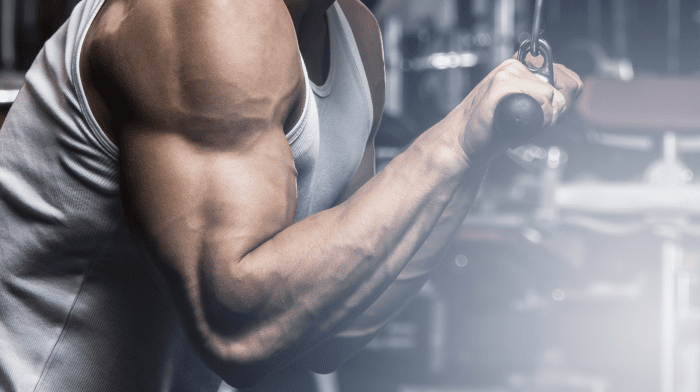Lean muscular mass, muscle growth, and improved athletic performance are all goals of creatine supplements. Athletes and gym goers alike use creatine supplements as one of their most reliable solutions.
The manufacturer’s recommendations state that using Creatine supplements correctly can produce observable achievements. Creatine supplements can be utilized to help people lose weight even though they are linked to lean muscle mass and muscle growth.
Creatine: What Is It?
An amino acid called creatine is mostly contained in the brain and muscles of your body. Creatine helps to guarantee a consistent energy supply to active muscles by maintaining production in muscle tissue. Furthermore, your brain, heart and other tissues all have small amounts of it.
Creatine is also present in diets including seafood, red meat and dairy products. As an alternative, you can give your body the creatine it needs by taking a supplement containing Creatine that has been manufactured artificially. It mostly converts phosphocreatine, which is stored as creatine in the muscles, into energy. As a result, you can take creatine orally to increase your muscle mass and exercise efficiency.
Moreover, heart failure and brain problems can all be treated with a creatine supplement to reduce their associated symptoms. Creatine is also very much beneficial for neuromuscular diseases like polymyositis, dermatomyositis, muscular dystrophy, myasthenia gravis, amyotrophic lateral sclerosis (ALS), rhabdomyolysis, cardiomyopathy, sarcopenia and many others. Using topically applied Creatine supplements can improve skin health.
Also Read : For Glowing skin and healthy weight loss.
Various forms of creatine
According to studies, consuming creatine supplements might reduce both physical and mental weariness. Choosing creatine supplements can be daunting due to the variety of Creatine supplements options. The various varieties of creatine are as follows:
- Creatine monohydrate: The most popular creatine supplementation is creatine monohydrate. This kind of supplementation for creatine has been used in various studies on the medication. Exercise performance has been linked to creatine monohydrate.
It is composed of molecules of creatine and water. The amount of creatine increases as the elimination of water occurs, producing creatine anhydrous. The amount of water in muscle tissue is increased by creatine monohydrate, aiding in muscular growth.
Furthermore, the water solubility of creatine can be increased by micronizing it, which improves the body’s capacity for absorption. This Creatine supplement works despite having varied processing processes.
- Creatine ethyl ester: One of the most credible sources of creatine supplementation is creatine ethyl ester. The monohydrate form of creatine ethyl ester is more readily absorbed by the body. However, some studies suggest that there are superior alternatives to this kind of creatine for increasing the amount of creatine in the body.
- Creatine hydrochloride: As creatine hydrochloride is highly soluble, a lesser dosage is still beneficial.
- Buffered creatine: Manufacturers of buffered creatine add alkaline powder in an effort to increase the stability of the substance in the stomach. Buffered creatine, according to their argument, has a high potency and reduces the possibility of bloating and cramping.
However, a report compared buffered creatine and monohydrate and claimed that they had different adverse effects or levels of effectiveness.
- Liquid creatine: The supplement creatine comes in a ready-to-drink version called liquid creatine. Research on this variety is scant, but it suggests that it is less effective than monohydrates.
- Creatine magnesium Chelate: It is a form of creatine that is “chelated” with magnesium. This means that each molecule of creatine is associated with magnesium. As per the various studies, these types of creatine products can enhance athletic ability, though monohydrate is more potent.
What Functions Does Creatine Have?
For the body to naturally generate energy, creatine phosphate is essential. This is due to the fact that ATP (Adenosine Triphosphate) serves as the cells’ primary source of energy.
According to a study, creatine supplements can improve workout efficiency, boost muscle power and strength and promote better exercise efficiency. It has been demonstrated in supplementary studies that oral creatine supplements can reduce mental exhaustion.
Creatine supplementation can also aid in weight loss. Since people use creatine to increase muscular strength and power, particularly when lifting heavy weights or engaging in other types of physical exercise, it is not typically viewed as an alternative for weight reduction.
According to a study, taking creatine may also aid in body fat reduction. Creatine supplements are made to promote lean muscle mass, muscle growth, and even to avoid cramps in your muscles.
If you want to lose some abdominal fat, taking creatine may be a great choice. With more physical and muscular endurance, you can exercise more efficiently to lose fat.
While losing weight may be the key to achieving a healthy weight, always talk to a doctor before taking any nutritional supplements to lower body fat and improve or treat specific medical ailments.
Dosage
Regardless of whether your goal is to increase muscle mass or reduce body fat, you should always adhere to the manufacturer’s directions. As monohydrate is the most widely used and extensively studied form of creatine, we will discuss its utilization.
The ISSN recommends consuming creatine monohydrate 4 times per day for a minimum five days each week. You can calculate your daily dose by multiplying 0.3 with your bodyweight since the dosage may vary depending on your body weight. A strong density of your muscles can be achieved by taking creatine supplements for four successive weeks.
Choose a reduced dosage to keep a balanced creatine content once your body has been fully nourished.
Creatine’s negative effects
Creatine supplements can be used to acquire weight or lose body fat, but like any nutritional supplement, they could have side effects. According to research, the most common adverse consequences of consuming creatine are feeling of dryness, thirst and cramps in muscles.
Insufficient hydration, taking numerous supplements, or being in the sun too long could all contribute to these symptoms.
While using creatine it’s important to stay hydrated appropriately. In addition, some individuals may experience an increase in body weight when taking these supplements. This is due to the natural ability of creatine to boost the capacity of the muscles to retain water; this change in body weight is not to be confused with an increase in fat mass.
When you lift weights or engage in any other type of weight exercise, the said weight gain gradually decreases over time. When combined with caffeine, creatine supplements may induce dehydration.
You should abstain from using this health product if you are suffering from any underlying health issues such as kidney problems, parkinson’s disease or bipolar disorder.
Must Read : Achieving great muscle gains and increasing lean muscle mass.
Can Creatine Cause Weight Gain?
Creatine supplementation, according to some, alters the body’s fat composition. Others even claim that they feel bloated or plumper after taking creatine. It is true that creatine can lead to weight gain, however, the extra weight is not adipose tissue.
This may be caused by water retention, which is caused by the accumulation of fluid in the muscle cells by the supplement. When the muscle stores this water, it is likely to cause heaviness in the limbs or your abdomen.
Muscle mass may be a contributing factor to this undesired weight increase. Creatine improves muscle power and endurance. Following the use of creatine, you might observe an increase in muscle bulk and strength. Fat growth, also referred to as non-muscular weight gain, may also lead to feelings of this.
The fact that a teaspoonful of creatine has very few to no calories negates the idea that it will make you obese. You can use Creatine’s ability to work out and speed up fat-burning if you combine it with a balanced diet and appropriate exercise.
Health advantages associated with the use of creatine
Among the many advantages creatine has for health are:
- Creatine supplements raise phosphocreatine links, which raises ATP levels. Due to its high amounts of energy, ATP supports the body during or after a strenuous workout.
- Creatine is essential for the synthesis of muscle proteins, which results in the growth of new muscle fibers and muscular mass.
- Studies show that myostatin speeds up muscle growth while creatine reduces levels of hormones that stunt growth.
- Creatine can improve sprint and ballistic power, mental concentration and stamina, muscle strength, endurance, sex drive and recovery because it increases ATP production.
- Creatine boosts the growth of muscles
- Both the short- and long-term development of muscle mass can be accelerated by creatine.
- Lessen the effects of Parkinson’s disease-related symptoms.
- Could fight off neurological diseases like seizures, Alzheimer’s, brain damage, or ischemic stroke.
- It manages diabetes and thus reduces blood sugar levels.
- Increases mental performance
- Reduces physical and emotional exhaustion
Conclusion
Weight growth and loss are both supported by creatine. It improves the muscular stamina and power needed to expend calories even while at rest. Additionally, it raises energy levels, and higher calorie burn rates can aid in weight reduction. Creatine causes muscles to retain more water, which causes weight gain because it increases muscular mass and size.
Utilizing Creatine supplements has significant positive effects on your health. Creatine is a great nutritional supplement to help you reach your weight objectives and enhance your general health, whether you’re trying to lose weight or gain it.









